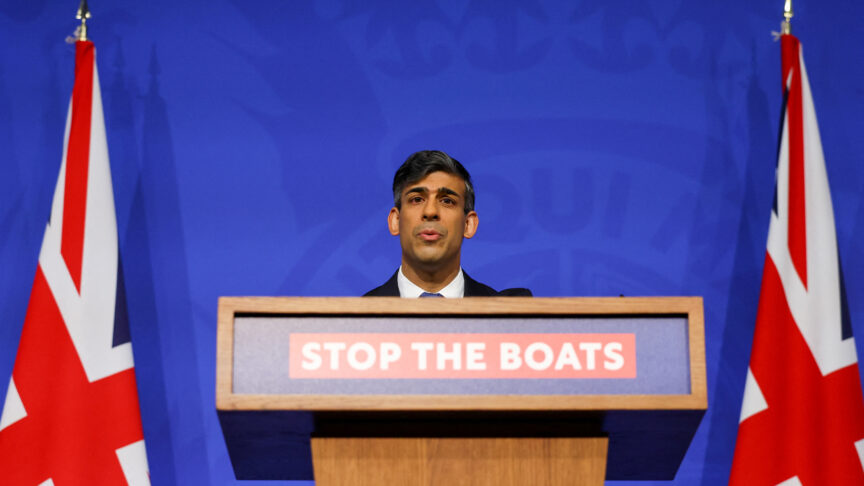UK treads a lonely path on Russia crisis
It is hard to imagine a UK government even just three years ago not having coordinated its public statements step by step with European partners.
Reflecting on the UK’s biggest fear for 2018 at the end of last year, I suggested that this might be the prospect of isolation, and evidence that European allies no longer see post-Brexit Britain as a crucial partner. In the last week, it is starting to look as if this fear may have already become a reality.
The UK has found its relationship with Russia spiralling into crisis in the wake of an attack in Salisbury last week, apparently authorised by the Kremlin, on a former Russian spy Sergei Skripal and his daughter Yulia, also affecting a police officer who went to their aid. The use of a military grade nerve agent was referred to by Theresa May in the House of Commons on Wednesday as “an unlawful use of force by the Russian State on the United Kingdom”.
After a wobbly start this week – which saw Secretary of State Rex Tillerson lose his job the day after he called out Russia’s actions in Salisbury – the US has come out in support of the UK , with Nicky Haley, the US ambassador at the UN, saying on Tuesday that the US believed Russia was responsible for the attack. So the ‘special relationship’ across the Atlantic, on which the Brexiteers in May’s government have leaned so heavily in justifying why a ‘Global Britain in a bilateral age’ will be alright outside the EU, seems to be intact for now.
But EU partners have been slower to come out in support of the UK. As the deadline for explanations that Theresa May had set for the Kremlin expired on Tuesday night, and news spread of the UK’s decision to expel 23 Russian diplomats in reaction, the new German Foreign Minister Heiko Maas called Russia’s lack of explanations disappointing, and said that he completely understood why the UK had felt that it needed to react to the situation. His boss has so far not pronounced publicly on the matter, although Downing Street has been at pains to stress that Chancellor Merkel expressed her support in a call between the two premiers on 13th March.
French foreign minister Yves Le Drian promised ‘co-ordination at the highest level’ with the UK as the situation unfolded, on Wednesday evening, and on Thursday, President Macron also promised that the French would be taking measures in response to the Russian actions in the coming days. At this point, EU Council President Donald Tusk also took action, of an EU nature, and promised that the issue would be looked at on the already packed agenda of the EU Council Summit next week.
Particularly since the 2014 Ukraine crisis, Russia has been a partner that has exposed splits within, as well as between national EU governments, between those who emphasise the importance of dialogue and those who advocate a more hawkish approach to its power play. Still, it is noteworthy that it has taken more than a week for other governments to publicly acknowledge that the UK has a point in reacting strongly to what happened in Salisbury.
It is hard to imagine a UK government five years ago, perhaps even three, not having coordinated its public statements step by step with European partners. In this instance, Theresa May appears to have spent a lonely few days experiencing her first taste of what Great Britain’s choice to go it bilaterally , rather than multilaterally within the EU, promises to feel like.
Ultimately, since we have ended up with the UK receiving support from its key partners in a UK-French-German – US statement on the matter, perhaps it doesn’t so much matter in this instance. But the bigger picture of a UK having to operate unliaterally, slightly separately from the security relationships that protect it, does matter, a lot. Is it too much of a stretch to imagine that part of the calculation in Moscow in carrying out this attack now, and in the UK rather than elsewhere in the EU, was to test the strength of these alliances, and particularly the mutual trust in the relationships between London and Berlin, London and Paris, in this tense time as the Brexit discussions gather speed?
Taking that thought just a step further, isn’t there a risk that disappointment within the UK political elite that it took maybe 48 hours too long for its EU partners to publicly come to its defence in such a serious attack, will make them further question the utility of showing the necessary goodwill in the other direction to secure a continued close co-operation on security and defence post Brexit, resulting in serious loss for both the EU27 and the UK?
As the 28 EU leaders head to the summit table next week, they would do well to reflect on the implications of events this week, not only for the discussion on the UK-Russia crisis itself but also for the agreement of the negotiating guidelines for the EU-UK future relationship. If there could be one silver lining of the dark cloud that has hung over Salisbury this week, it might be to serve as a timely, real life, reminder of how much is at stake for the UK in deciding future security co-operation arrangements with other EU governments.
The European Council on Foreign Relations does not take collective positions. ECFR publications only represent the views of their individual authors.


